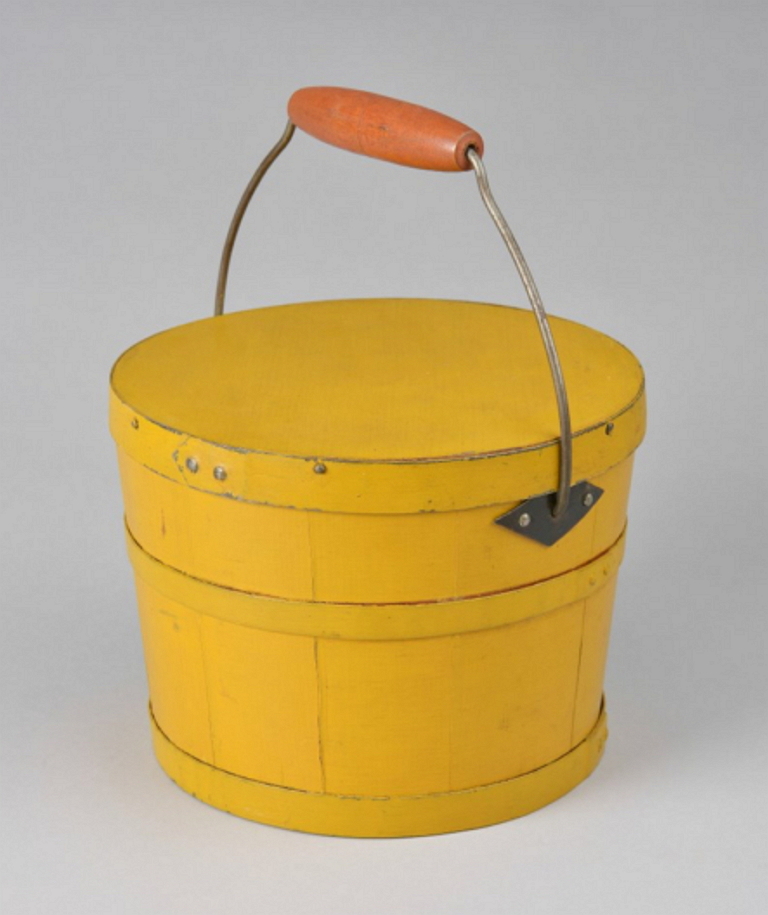Trip-Hammer
Trip hammer used at the forge of the Church Family, Mount Lebanon, NY
1848
Description
Double trip-hammer made of wood timbers, some of which are painted gray; iron fixtures, wheels, shafts, and connectors; and leather shock absorbers. Hammer at each end, one measuring 89 3/4" and the other 60 1/2". Five-spoke iron wheel at the side that is 64 3/4" in diameter. The belt wheel has a diameter of 35 1/2".
Notes
The four ton trip-hammer is the largest single piece of machinery ever built by the Shakers. Built in 1848, and powered by water, the trip-hammer allowed the Shaker blacksmiths to hammer pieces of hot iron too large to be fashioned by hand: tools, equipment, and large architectural hardware. This example resembles other trip-hammers in use by non-Shakers. This trip-hammer has two different sized hammers, both of which operate at the same time. The length of the hammers' wooden handles and the weight of the hammer heads determined the force of the hammer blows. The rotary motion of the waterwheel was converted to a hammering action by a heavy iron rotating shaft with wedge-shaped protrusions. These protrusions struck down on the end of the handles, forcing the hammer heads to rise up. Spring operated iron catches held the hammer heads in the air until the blacksmith released or "tripped" one of the heads with a foot lever. Trip-hammers heads were often equipped with pairs of swage blocks, cast iron inserts that were mounted in the hammer head and in the anvil on which the head was struck. The faces of the swage blocks had shapes cast into them. For example, concave half-rounds would form a round shaft on the end of a square piece of hot iron rotated in the blocks as the hammer pounded. A piece fashioned in this manner might be used as an axle for a vehicle or a shaft for a piece of machinery. A journal in the museum's collection records that the Shakers purchased castings and other components for the machine in February and March of 1848, and that in May the brethren were working to get it in operating order. The construction likely came about due to the completion of a new blacksmith shop in 1846. A HABS drawing from the 1930s of the shop building shows the trip hammer where it was originally positioned (https://www.loc.gov/resource/hhh.ny0522.sheet/?sp=2). Photographs in the museum's collection show its appearance when it was acquired in the 1940s.
New York Mount Lebanon Church Family











![1950.3796.1 - Print, Photographic - [Forge Shop, Church Family]](https://s3.amazonaws.com/mediashakers/object/collection/jpg/007-noc003796001.jpg)
![1950.3796.2 - Print, Photographic - [Forge Shop, Church Family]](https://s3.amazonaws.com/mediashakers/object/collection/jpg/007-noc003796002-2.jpg)

